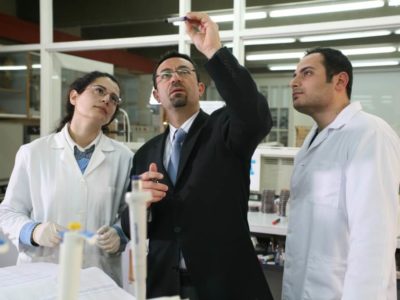So you want to travel the road to pharmacy school, huh? Well, buckle up, because it’s going to be a bumpy ride. The path to Pharamcy school, like any science-related major, is tough. Your whole college life will be impacted. Studying will happen so often you’ll feel like it’s an extra course and you will use words like “practicum” and “lab” more than you ever imagined. It’s a high stakes kind of field. But the rewards are definitely worth it.
How Do I Get There?
Typically to be admitted into a pharmacy program students must complete all of the pre-pharmacy requirements, take the PCAT (Pharmacy College Admissions Test) and ultimately complete the steps to apply to Pharmacy school. Sheesh! That sounds tough. Essentially during college you’ll focus on completing the core requirements so you can learn what it is you need to know to ace the PCAT. Once you rock out the PCAT with the score you want, grab your white coat and start the application process for Pharmacy school. First, you have to send an application to PharmCAS (Pharmacy College Application Service) where they will give you an ID number that you use for your application. Next, sit back, relax and wait for the acceptance letters to roll in.
What Classes Will I Take?
Pharmacists are drug experts, so much of what you learn is selecting appropriate drugs, monitoring treatment, educating and promoting compliance and working with other health care professionals. In lab, lectures, and experiential training you learn everything pertaining to disease states, pharmacological and non-pharmacological treatments, drug formulations, drug administration, drug adverse effects and anything else having to do with medications.
Here are some examples of the kick-ass classes you’ll take: In Medicinal Chemistry you will learn the analysis of the chemistry drugs and how structural manipulations can affect the drug action. Pharmacology and Disease Management teaches about different systems and potential diseases or ailments of that system and what drug classes would be appropriate to use for treatment. Pharmacokinetics teaches what the body does to a drug in terms of absorption, distribution, metabolism and excretion. In addition to classes you also spend a large amount of time in lab. “Lab is a big portion of what I take (having it twice a week). In Pharmacy Skills Lab, I make pills, lotions, suppositories, creams, tinctures and any drug form basically. Another part of lab is hospital and community lab, where we learn about the settings and the possible day-to-day things we would do in such settings,” said University of Georgia College of Pharmacy third-year Chike Ibiam.
Internship Opportunities
Congratulations! If you’ve made it to the point where you’re thinking about internships then it looks like you’re doing something right. Usually official internship opportunities in retail pharmacy or hospital pharmacies are specifically saved for pharmacy students. Students who are looking to gaining experience can do so my shadowing a pharmacist or any healthcare professional and working as a pharmacy tech.
https://www.youtube.com/watch?v=1EaPWzbiVYs
Career Opportunities
1. Community Pharmacists
This is probably what you have in mind when you think of your standard every day Pharmacist. Community pharmacists work in supermarkets, pharmacies and clinics. Their main goal is to promote the health and well being of the community by providing information and medicine to those in need.
2. Hospital Pharmacists
Hospital pharmacists study medicine and its effects on individuals. As a pharmacist, roles vary from filling and dispensing prescriptions to testing out different medicines. Hospital pharmacists differ from community pharmacists because they work with nurses and doctors directly to make sure patients receive the right medicine.
3. Pharmaceutical Researchers
Pharmaceutical researchers study, investigate and perform research on various forms of medicines. Research in this field largely relates to learning about different diseases and using that knowledge to help develop new and better drugs to help patients fight these diseases.
4. Pediatric Pharmacists
Pediatric pharmacists are similar to other pharmacists, however, they work specifically with parents and children. Pediatric pharmacists take on a counselor-type role by helping to not only fill prescriptions, but to monitor progress and to make sure that nothing goes wrong with medication.
5. Academic Pharmacists
An academic pharmacist’s main job is to instruct and teach aspiring pharmacists. There are many pharmacists who serve in hospitals and then choose to teach at colleges and universities to employ the knowledge gained in the field of research.
Reviews
“I found that the pre-pharmacy track has been quite rewarding. The pre-pharmacy advisors were exceptionally helpful and knowledgeable on the ins and outs of the track and in applying to pharmacy school. Although the classes were beyond challenging, I appreciated the fact that they pushed me to learn and apply what I learned during class, lecture, and lab.” — University of Georgia College of Pharmacy first-year Ezimma Nnyagu
“The classes are definitely more challenging with higher expectations. Last semester I took 19 hours with about four core science classes. I took an average of 14 hours in undergrad. Last year was the hardest academic year of my life! There really are not enough hours in the day when you average 2 exams a week with a drug card quiz and one exam can easily have 300 slides. Despite the long hours trying to memorize drugs I can’t even pronounce, I do like what I’m doing and what I’m learning.” — UGA College of Pharmacy third-year Chika Ibiam
“Pharmacy school, overall, was an excellent experience. Over the past four years, I’ve learned more information than I could’ve ever dreamed, made lifelong colleagues that I see more as family than friends and seen the impact that I can make on this world through a profession that many sometimes overlook.” — UGA College of Pharmacy graduate Patrick Walker

















